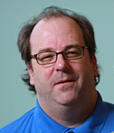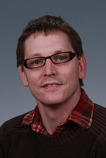
2012 NWChem Workshop, June 8-9
Video links to:
The LONI Institute, with LSU's Center for Computation & Technology and High Performance Computing, will be hosting their first Workshop on NWChem, June 8-9, 2012 on LSU's campus.
NWChem is a computational chemistry package that can be used to perform electronic structure calculations on molecular and periodic systems as well as classical molecular dynamics simulations. It is designed to run on high-performance parallel supercomputers as well as conventional workstation clusters. The aim of the program is to provide scalable solutions for large-scale atomistic simulations. It has been ported to almost all high-performance computing platforms, workstations, PCs running LINUX, as well as clusters of desktop platforms or workgroup servers. NWChem is developed and maintained by the EMSL at the Pacific Northwest National Laboratory in Washington State. The latest release, NWChem 6.0, is distributed under the terms of the Educational Community License version 2.0.
NWChem has a broad suite capabilities including: Hartree Fock, Density Functional Theory (including most of the state-of-the-art exchange-correlation functionals), higher order many body approaches like Coupled Cluster Theory and MP2, relativistic approaches like Douglas-Kroll-Hess (DKH) and ZORA, Planewave based Car-Parrinello Molecular Dynamics (CPMD), Excited-State approaches using CIS, TDHF, TDDFT, EOMCC Theories, Classical Molecular Dynamics, Geometry Optimization (minimization, transition state), Vibrational frequencies, ONIOM, COSMO solvation model and various properties. The package also features a QM/MM module that allows one to combine most of the above approaches in a seamless manner.
This workshop is aimed at new and experienced users of NWChem. Basic knowledge of computational chemistry is desirable. A workshop will be a mix of morning lectures and afternoon hands-on tutorials where participants will have the opportunity to explore the various capabilities as well as interact with NWChem developers. Users and developers interested in developing and implementing new capabilities in NWChem are also welcome.
Invited speakers are
 |
At the Environmental Molecular Sciences Laboratory (EMSL), Eric J. Bylaska
is the primary developer of the first principles plane-wave module in NWChem software.
He works on the development of a wide range of parameter
free petascale simulation methods, including ab initio molecular dynamics (AIMD) with exact
exchange and MP2, combined ab intio and classical molecular dynamics simulations (AIMD/MM),
parallel in time solvers, spectral solvers, finite-element solvers, and pseudospectral solvers.
He has been applying and developing first principle methods to a variety of projects,
including the study of aqueous ions, the degradation of volatile organic compounds in the
subsurface, the electronic structure and reactivity at Fe(II) containing surfaces, and
modeling the interactions of heavy elements (i.e., actinides) with geochemical fluids,
mineral surfaces, and nanoparticles. |
 |
Hubertus J. J. van Dam joined the Pacific Northwest National Laboratory (PNNL) in
2009 after working for STFC Daresbury Laboratory in the United Kingdom. At Daresbury, he
was responsible for the density functional theory capabilities in GAMESS-UK. This code uses
the Global Arrays for some of its parallel functionality similarly to NWChem. He developed
DFT capabilities for embedded cluster calculations, infrared spectra, NMR and TDDFT
excited state gradients. In addition, a library of density functional routines was
created and made publically available. |
The invited speakers will provide pedagogical and expository lectures on the methods that they use, complemented by hands-on sessions*. The format allows plenty of time for discussions.
(*Participants need to bring their own laptop for the hands-on sessions.)
Who: The workshop is open to the public. Travel support is available to participants from Grambling State University, Louisiana State University, Louisiana Tech University, Southern University at Baton Rouge, Tulane University, University of Louisiana at Lafayette, University of New Orleans, and Xavier University of Louisiana. (Depending on the number of applicants for travel support, students, postdocs, or staff may be required to share rooms.)
Where: Training room of Johnston Hall, room 338, LSU campus.
Participants are expected to know basic linux, but they can be brought up to speed by taking the online courses "Intro to HPC", "Remote Access with SSH", and "Survival Skills with the BASH Shell" at https://docs.loni.org/moodle/ .
Registration: Registration is required. Sorry, but we don't have any spots left!
To be added to the waiting list, send an email to Bety Rodriguez at brodrig AT
cct.lsu.edu by June 1st. In the e-mail, please include
- Your name
- Title (faculty, research staff, postdoc, graduate student, undergraduate)
- Affiliation (university and department)
- Preferred email address (to which the confirmation will be sent)
- Dietary restrictions (none, vegetarian, kosher, etc.)
- You want to be considered for a travel award (you will be notified by June 4).
- You will be attending the LONI High Performance Computing Workshop, June 4-6
- You will be attending the LONI HPC User Symposium, June 6-7
Continental breakfast, lunch and refreshments will be provided each day. Participants cover their own transportation, and/or lodging costs. A limited number of travel awards are available to cover the travel expenses of qualified students or postdocs.
Conference Organizers:
Juana Moreno, Louisiana State University, moreno AT lsu.edu
William Shelton, Pacific Northwest National Lab, William.Shelton AT pnnl.gov
Wibe DeJong, Pacific Northwest National Lab, Wibe.DeJong AT pnnl.gov
Mark Jarrell, Louisiana State University, mjarrell AT lsu.edu
Other information:
About LSU: http://www.lsu.edu/visitors/images/thingstodo.pdf
About Baton Rouge: http://www.visitbatonrouge.com
LSU campus map: http://campusmap.lsu.edu/
LSU visitor parking map: https://sites01.lsu.edu/wp/parking/files/2011/06/VC_parking_map_FINAL2.pdf
For more information, please contact Leigh Townsend at lgalat1-at-tigers.lsu.edu.